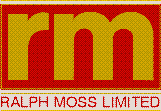 Ralph Moss Limited
Ralph Moss Limited
 Ralph Moss Limited
Ralph Moss Limited
-Take Drugs Properly
To Ensure They Work
MANY OF TODAY'S MEDICATIONS are "miracle" drugs that help to control and cure illnesses and diseases that in the past were often untreated or treated inadequately. Modern drugs help cut hospital stays, reduce the need for surgery, and speed recovery. More importantly, they can prolong life and help those who suffer from illnesses or diseases live. healthier and more productive lives
But these benefits can only be realized if medications are used properly and when patients comply with instructions for use of prescribed treatments.
50 Per Cent are Noncomplient A recent study of inappropriate drug use and noncompliance in Canada found that only 50 per cent of prescription drug users take their medications as directed. The rest are noncompliant, either deliberately or unintentionally. Approximately 33 per cent of prescription drug users either do not fill their prescriptions or buy the medications but fail to use them. Seventeen per cent do not follow their physicians' instructions regarding use of their medications.
Noncompliance does not seem to vary by gender, race, socioeconomic status or educational level. It is found in all age groups and across all types of diseases and illnesses.
Noncompliance Noncompliant patients misuse drugs in a number of ways: they take prescription medication that belongs to others, forget to take their medications, take the wrong
dose (too little or too much), give up medications because they experience unpleasant side effects, take medications erratically, stop taking a medication when they begin to feel better, or finish "old" prescriptions at a later date. Not taking prescribed medications as directed may cause a patient's condition to fail to improve.
It is generally felt that noncompliance arises from any or all of three common causes:
Insufficient Treatment
Noncompliance also directly affects how well a specific drug treatment program will work, and may prolong illnesses and keep patients from improving as they should. Stopping a medication too soon, before the time authorized by a physician, may make a treatment ineffective. For example, if the full course of therapy of an antibiotic prescribed to fight a bacterial infection is not finished, some bacteria may remain alive and cause the infection to flare up.
Another form of noncompliance is to take a "drug holiday" or time off from medication for a long-term illness or disease. Often the benefits of maintenance medications are not appreciated until a patient stops taking them. At that point, insufficient drug therapy may result in complications or an increase in the severity of the disease.
Who Is
Noncompliant?
Noncompliance is defined as not adhering to a physician's instructions when taking medications. It can include any of the following:
Inappropriate use can include:
Source: Review of the Scientific
Literature on the Prevalence,
Consequences, and Health Costs of Noncompliance and Inappropriate
Use of Prescription Medication in Canada
Ensuring Compliance The study of inappropriate drug use and noncompliance previously mentioned, reported that patients forget up to 70 per cent of the information they have received from their physicians. In addition, patients may not be compliant with their prescription drug therapies for any of a number of reasons, including:
Noncompliance is directly proportional to the number of medications prescribed and used. Because of this, it is critical that the patient know what each drug is for and when it should be taken.
The Patient's Responsibility Drug therapy is prescribed by a physician and dispensed by a pharmacist. In reality, however, the responsibility for treatment remains with the patient. After all, it is the patient who decides to fill the prescription, take the medication as prescribed, and refill the prescription as instructed. Patients should:
Thousands of people die each year in Canada because of medication noncompliance. It is up to patients to comply with their physicians instructions and ensure that they are not victims of noncompliance.
This article is not intended to give medical advice or provide suggestions regarding specific treatment. A physician should be consulted in all cases where problems are suspected.
How to Improve Compliance
- What foods or beverages should I avoid while taking the medication?
- When should I take my medication - before, with, after or between meals?
- Will the medication affect any of the other prescription or nonprescription medications I am taking?
- What should I do if I miss a dose?
Working With Health Professionals
Health professionals - physicians, nurses, pharmacists - can provide patients with information they may need to improve their incentive and motivation to take their medications, while helping them comply with instructions for their use.
Pharmacists can work with patients to develop a Pharmacy Care Plan that can include the following information:
- how the medication will help and methods the patient can use to keep track of this - for example, check blood pressure regularly to monitor high blood pressure medication;
- how the medication will make the patient feel, including signs it is working and expected side effects;
- what the patient can do to improve the effectiveness of the medication;
- what the patient can do to minimize side effects;
- what the patient should do if he or she notices side effects, e.g., contact the pharmacist or physician for further instructions rather than discontinue the medication;
- how to fit medication use into the patient's lifestyle - this may include helpful hints (such as memory aids, dosage calendars or pill organizers), or may require a modification of dosing instructions, or even a change in medication to one that has a dosage schedule that makes it easier to follow.
The information and opinions contained
in this newsletter are obtained from various sources and believed to be
reliable, but their accuracy cannot be guaranteed. Readers are urged to consult
their professional advisors before acting on the basis of material contained in
the newsletter.